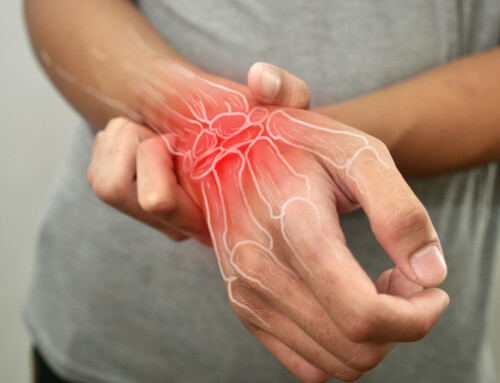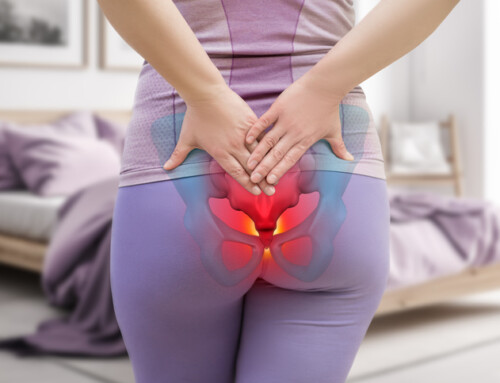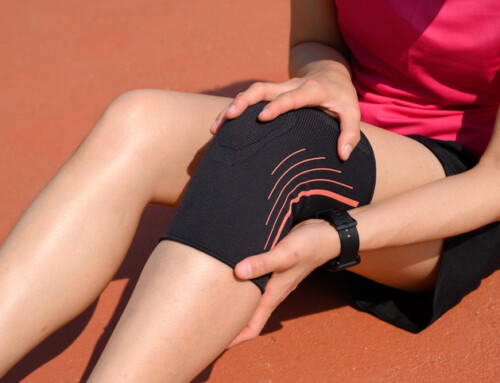Do You Need A TMJ Physical Therapy Evaluation?
Without a doubt, jaw pain can be unbearable; it can be excruciating if not attended to. A TMJ PT evaluation from Capital Area Physical Therapy can provide a road map for relief.
If you your jaw makes popping and clicking sounds, you have difficulty opening and closing your mouth, experience neck, jaw and ear pain and feel different sorts of aches and sores while chewing, these may be signs of a temporomandibular joint (TMJ) disorder or temporomandibular joint disorder (TMD).
The temporomandibular joint is a complex joint that can be found at the base of the skull. It can move horizontally and vertically, which is vital for both chewing and talking. This is the joint that connects the mandible and temporal bone or in simpler terms, your jaw and skull. It’s a body part that you may not be aware of, but it is far more important and used much more frequently than we realize. It is actually considered one of the body’s most complex joints since it can move up and down and side to side; however, this reason also makes TMJ disorders, especially severe ones, more difficult to treat.
Symptoms of TMJ
Multiple symptoms can point to a Temporomandibular Disorder (TMD), most of which involve experiencing uncomfortable pain in the jaw area. TMD’s can usually be identified by:
- Soreness or tenderness is felt around the jaw
- Difficulty opening or closing the mouth area
- Aches in the neck or shoulders
- Pain around the ear
- Pain when chewing
- Swelling
- Unexplainable headaches, toothaches
- Locked jaw
- Clicking, popping and grating sounds when you open and close your mouth
TMJ can easily go unnoticed, and leaving it untreated for so long can create bigger damages later on. Acute symptoms can last for a few days to a couple of weeks then disappear when the problem is resolved, and you may experience TMJ on one side only. Meanwhile, for more serious TMJ conditions, symptoms can be prolonged; alongside feelings of sharp and dull pain that can happen for an extended period of time – meaning months to years.
Did you know, about 5-12% of people experience pain in the jaw area? Be cautious – the clicking sound or popping you hear and feel are already signs that something is not right, all the more if it becomes bothersome.
What you need to know about TMD is that it’s developed through the overstimulation of the TMJ. The causes for TMJ disorders can vary from teeth or jaw misalignment, teeth grinding and clenching, bad posture, stress, and even excessive gum chewing— it may be unclear exactly where these pains come from, but a usually identified causal factor for it is stress. Oftentimes, people may wonder why their jaw makes clicking sounds when they chew or talk and also easily pass it off as something normal until it’s not.
Treatment for TMJ can actually start at home. You can start by eating soft food that doesn’t require a big of a bite and too much effort when it comes to chewing. You can also take over-the-counter pain relievers or anti-inflammatory medication such as ibuprofen and naproxen. Relaxing and massaging your neck and jaw are also very useful since stress is known to be a great cause for TMD. Other ways can be by practicing good posture, avoiding extreme and unnecessary jaw movements, and trying your best to keep your teeth slightly apart as much as you can.
PT Evaluation for TMJ
However, if you’re experiencing TMD and the pain is continuing or becoming worse, it may be time to consider TMJ physical therapy— where numerous available treatments can help improve your jaw’s overall state. Physical therapists, when treating TMD, use various ways to get rid of the pain. (See our TMJ Case Study here)
Physical therapy may include different kinds of stretches and massage techniques to help you relax, stretch, and strengthen your jaw muscles. During your initial TMJ physical therapy evaluation you may undergo different scans and tests to properly diagnose your TMD and see what are the reasons behind your TMJ pain.
Most TMD cases can easily be improved through habitual changes or by TMJ exercises your physical therapist will use. In every session, your therapist will most likely prescribe or conduct some clicking jaw exercises or various targeted exercises for you to routinely practice to help your jaw area feel better. Although these exercises do seem a bit funny-looking at first, they actually are a great solution for your jaw pain to get better. These therapists can help bring back joint mobility, to help strengthen your jaw muscles and relieve pain.
So what kind of TMJ exercises can you expect in your physical therapy sessions for your TMD?
- First off, these exercises will mostly revolve around relaxing your jaw— great practice for those who grind their teeth and clench their jaws so often. This is done by placing your tongue at the roof of your mouth while simultaneously letting your jaw relax and holding this position for about 5-10 seconds.
- The next most popular exercise you’ll most likely experience in therapy is neck-strengthening exercises. Seeing as the neck is pretty close to the TMJ, it’s expected that its weak muscles may be the root causes of your jaw pain. Here, you’ll find yourself laying on your back and performing chin tucks; making sure your chin is relaxed and holding your chin to your chest for about 5 seconds.
- Another exercise that’s often done during therapy sessions for TMD is resisted mouth opening and closing.
The effects of these exercises can only appear when they are repeated properly on a consistent and regular basis. Not only are these exercises able to strengthen the muscles surrounding your jaw area, but they are designed to restore the mobility of your jaw area— helping to reduce any pain, swelling, clicking and popping sounds that have been bothering you beforehand.
The jaw area plays a very important role in our daily lifestyle— from chewing to talking, we use it at almost every moment. Chronic TMD can only become worse down the road. Jaw pain can range from slight to unbearable; when you experience signs, like grinding, clicking, and popping, it’s always best to seek professional advice when something doesn’t seem right.
The physical therapists at Capital Area PT provide treatment for TMD and TMJ jaw pain and symptoms. Contact us at (518) 289-5242 for a TMJ PT evaluation. Serving Albany, Latham, Clifton Park, Malta, Saratoga Springs, Queensbury and Glens Falls NY regions.






